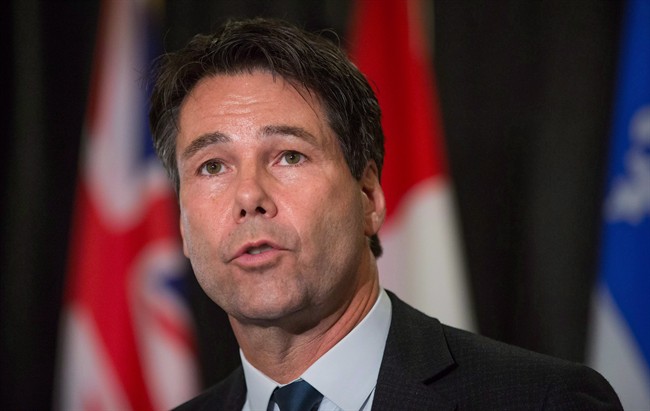TORONTO – There could soon be a resumption of negotiations between the Ontario government and the province’s doctors, who have not had a fee agreement for two years.

Health Minister Eric Hoskins wrote the Ontario Medical Association Monday seeking a return to negotiations within 10 days, expressing hope for a deal by June 30, and stating that the government was ready to talk about binding arbitration.
“This is a significant request given that the vast majority of physicians in Canada do not have such arbitration rights and several provinces are actively moving away from this model of negotiation,” wrote Hoskins.
“Nevertheless, as you have known for many months, I am prepared to discuss mediation/arbitration as part of formal negotiations.”
Hoskins’ statement on arbitration was exactly what the OMA wanted to see before it agreed to resume negotiations.
READ MORE: Doctors rally over cuts after announcement that 500 doctors bill over $1M
“In light of the government’s new position on binding arbitration, Ontario’s doctors are ready and eager to meet with the minister of health tomorrow to agree to the terms of binding arbitration,” OMA president Dr. Mike Toth said in a release.
The government has always resisted binding arbitration, which is why the OMA launched a Charter of Rights challenge asking the court to declare that physicians have a constitutional right to the resolution mechanism, added Toth.
“The OMA looks forward to the minister of health and long-term care accepting our invitation to meet tomorrow,” he wrote.
There have been no negotiations with the OMA, which represents 34,000 physicians and medical students, since the doctors “walked away from the table in January 2015,” Hoskins said in his letter to Toth.
“After a year of negotiations in good faith and another year of operating without an agreement, I am once again urging you to return to the negotiating table so that together we can find a solution to this impasse,” Hoskins wrote.
The two sides have been at loggerheads since the province imposed some fee cuts on doctors last year.
READ MORE: 500 doctors billed Ontario’s health insurance plan $1M each; one billed ‘staggering’ $6.6M
There is an “imbalance of income” between some specialists who bill over one million dollars a year and “the vast majority of physicians, including our family doctors,” said Hoskins.
“I believe that technological advances in care delivery have permitted many of these high-billing specialists to increase their annual billings to heights that are clearly out of balance with what other physicians earn,” he wrote.
“This is not only unfair to the vast majority of physicians, it hurts patients as it impairs our shared ability to predict and responsibly manage the funds that Ontarians have entrusted to us to build a stronger health care system.”
Hundreds of physicians rallied the legislature Saturday in a protest organized by the group Concerned Ontario Doctors. They complained about Liberal government underfunding, with some sporting signs reading “care not cuts.”
READ MORE: Ontario government complains about ‘out of control’ doctors’ billings
Hoskins had angered some doctors last Friday by announcing that more than 500 Ontario physicians each billed over $1 million last year, with one ophthalmologist billing $6.6 million, but he did not disclose any of their names.
Premier Kathleen Wynne said Monday that the government was not trying to embarrass doctors by releasing those numbers.
“It was an attempt to articulate what the challenge is,” she said. “There are procedures that have changed over time, that used to take hours and now take a short period of time, but the fee schedules have not kept pace.”
The province budgets more than $11 billion annually for physician compensation, but has to find hundreds of millions more at the end of each year because there is no cap on doctors’ billings, added Wynne.
“We need to make sure the money is allocated in a way that is fair and predictable and that reflects the technology that has changed over time,” she said.
“The fundamental reality is that the fee schedule has not kept pace with changes in technology.”



Comments